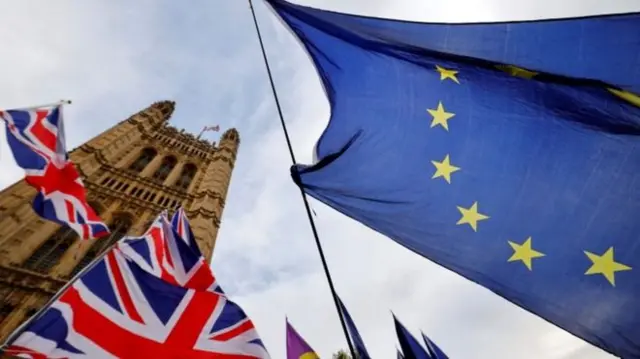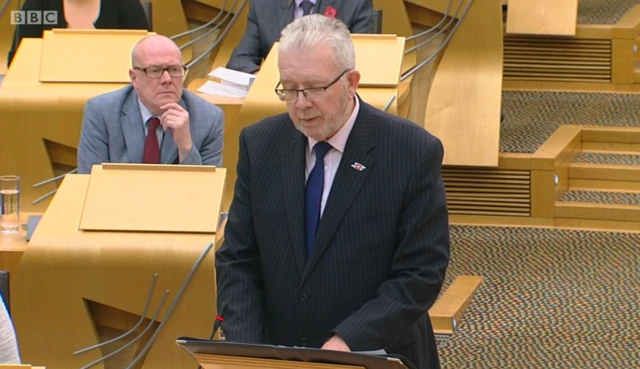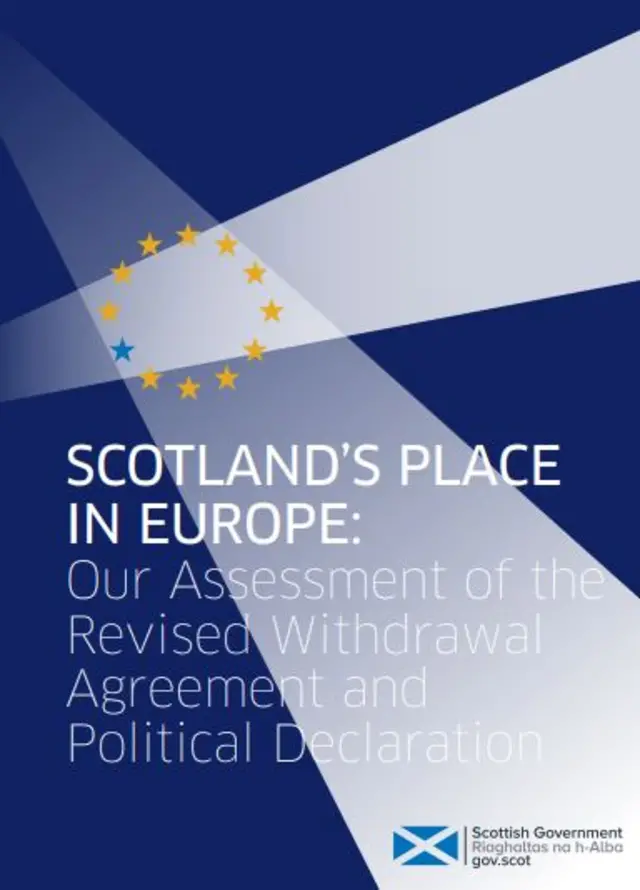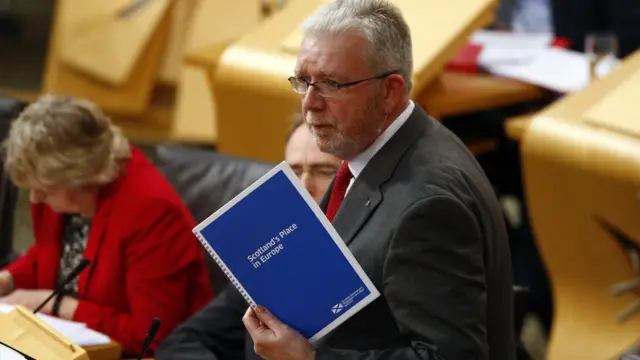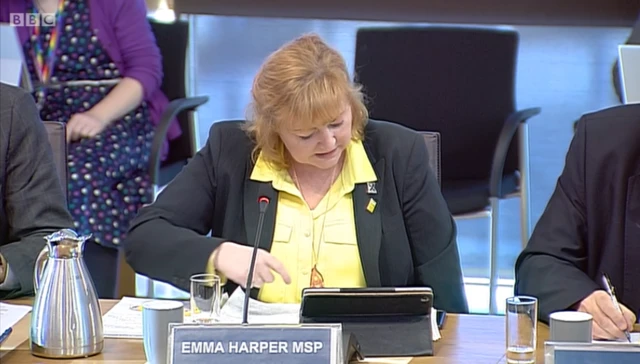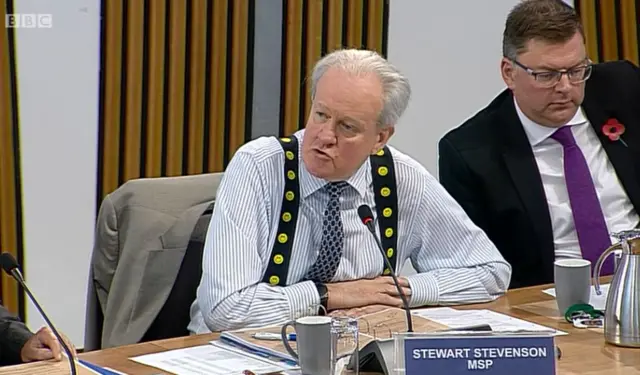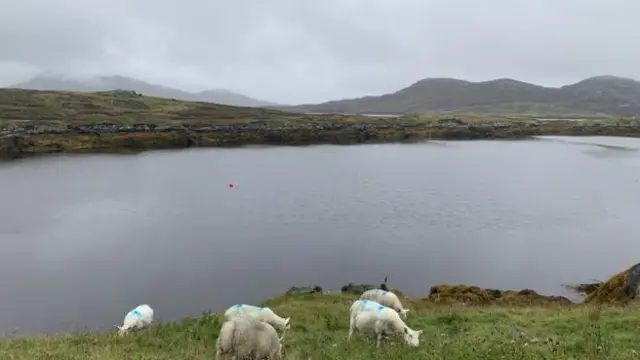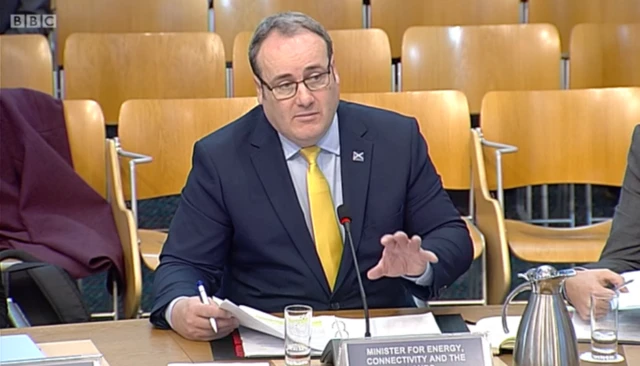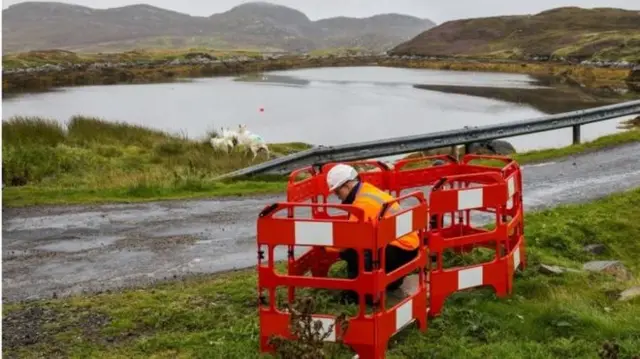Russell: 'Bring it on'published at 13:47 GMT 30 October 2019
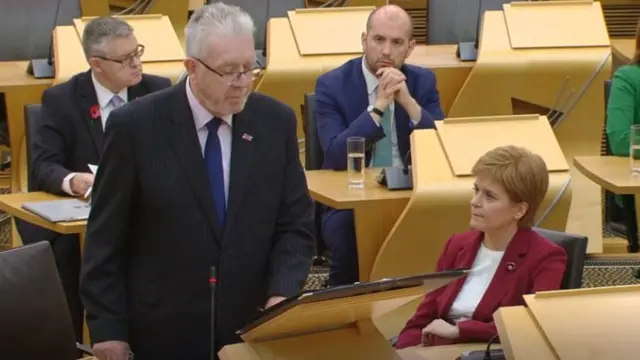
The cabinet secretary says changes between Johnson and May's deal suggest a more distant relationship with the EU is anticipated.
He warns the deal will also undermine the rights and wellbeing of EU citizens who have chosen to make Scotland their home, as well as making Scotland less attractive to people.
Not once has the UK government sought the agreement of devolved administrations during negotiations with the EU, the minister insists.
Mr Russell accuses Boris Johnson of not understanding devolution.
The people of Scotland have a right to determine their own future as as member of the European Union, he insists.
Turning to the upcoming election, he concludes: "Bring it on."

